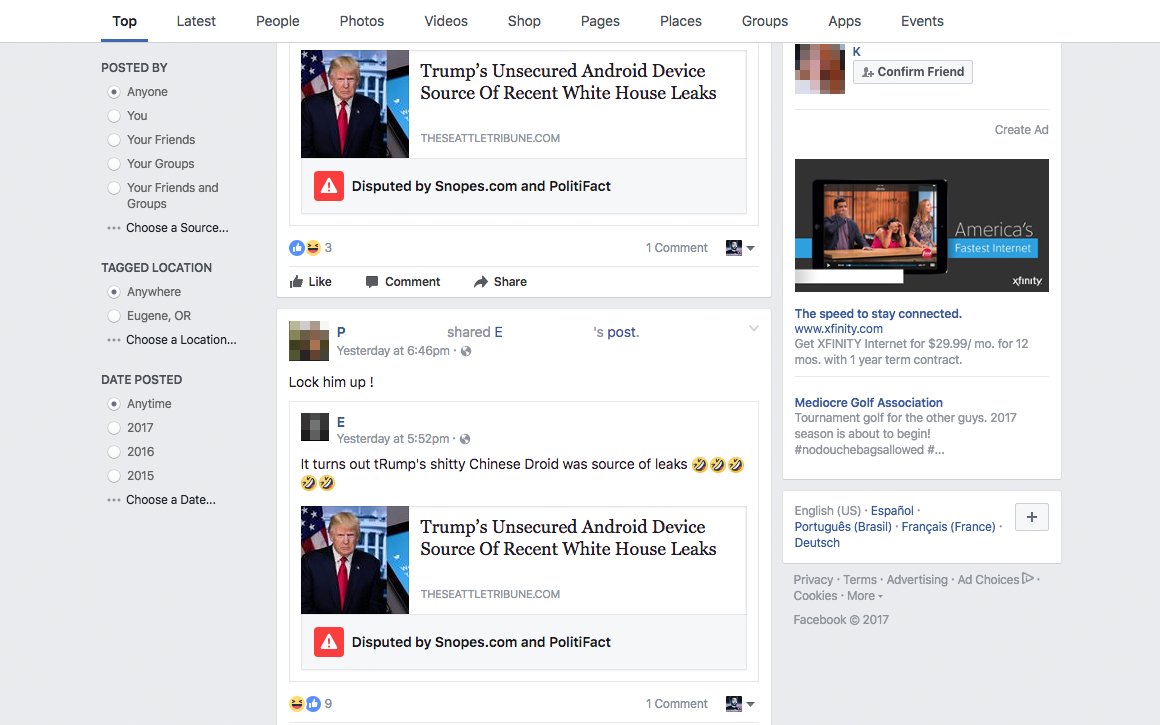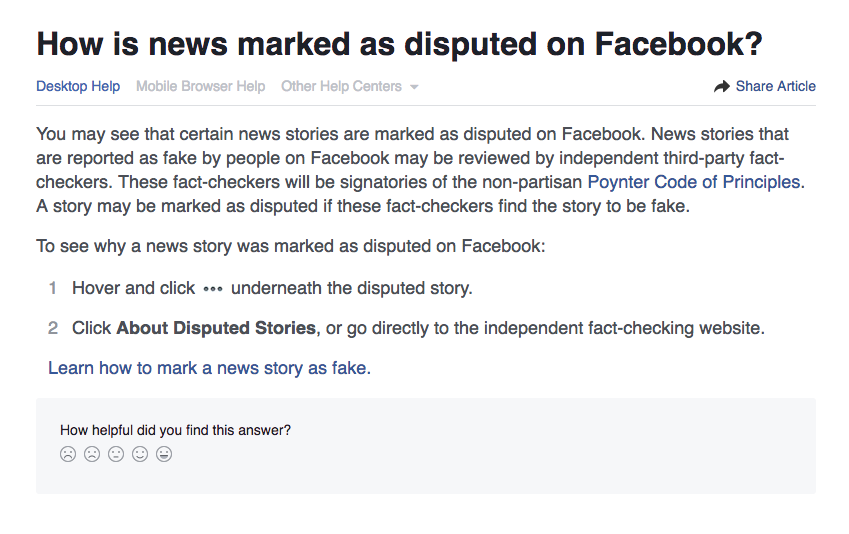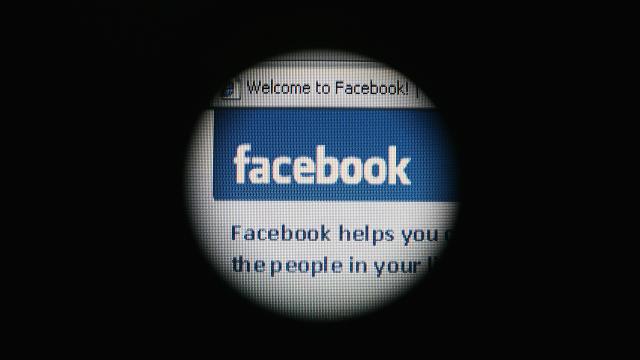Last Friday, Facebook debuted its new flagging system for fake news in the US, tagging hoax stories as “disputed” for some users. First announced amid criticism of the company for its role in spreading misinformation during the 2016 election, the new feature uses non-partisan third parties to assess the factual accuracy of stories reported as fake by users.
Photo: Getty
Finally, fake news is dead.

Image: Facebook
LOL, yeah right.
To Facebook’s credit, the system seems to be as rigorous and transparent as anyone could hope for. Stories, not entire sites, are flagged individually and continue to appear on the social network, albeit with links to debunkers from participating organisations like Snopes and Politifact. As promised in December, all fact-checkers are required to sign a “Code of Principles” created by the journalism non-profit Poynter, which seems like as good a guideline as any.
But while Poynter’s pledge itself consists of banal, seemingly uncontroversial statements — beginning with a “A COMMITMENT TO NONPARTISANSHIP AND FAIRNESS” — conservative outlets like Breitbart began attacking the organisation shortly after the announcement last year for its connections to liberal donor (and right-wing boogeyman) George Soros.

Image: Facebook
“It’s hardly shocking to discover that the new era of Facebook fascism has connections to globalist arch-villain George Soros,” wrote one site. “The bloodsucking Hungarian ghoul is ploughing money into at last [sic] one of the leftist media organisations that have been charged with being the social media thought police.”
Of course, one doesn’t need to consult the internet’s lunatic fringe to find conspiracy theories leveled at rather straightforward reporting. President Trump has famously, repeatedly used the term “fake news” to dismiss criticism by the press, usually in all caps.
Russia talk is FAKE NEWS put out by the Dems, and played up by the media, in order to mask the big election defeat and the illegal leaks!
— Donald J. Trump (@realDonaldTrump) February 26, 2017
Tellingly, the two articles found tagged as “disputed” by Facebook in Gizmodo’s tests on Friday shared some important characteristics: They’re critical of the Trump administration and originate from sites that openly admit to posting fictitious stories.
In November, a source told Gizmodo that the social network’s fight against fake news before the election was undercut by a “fear about upsetting conservatives.”
As a political news juggernaut that would prefer to be apolitical, Facebook finds itself in an unwinnable position. Months before the new feature debuted, some were already warning that the system won’t go far enough. And no doubt, the company will hear cries of “censorship” once it disputes a story conservatives actually believe.
In the end, Facebook’s solution seems to be a solid compromise that will leave both fact-checkers and free speech absolutists unsatisfied. Perhaps the premise itself is flawed. Instead of wondering what Facebook is doing about fake news, maybe we should ask why we largely trust a single website to decide what is and isn’t worth seeing online.
[h/t Anna Merlan]
